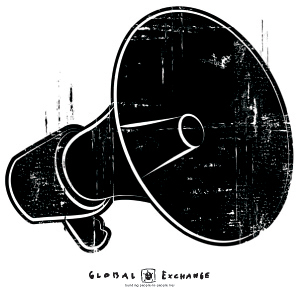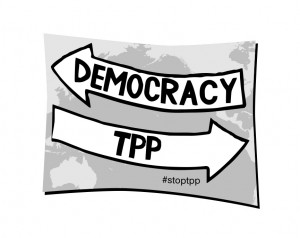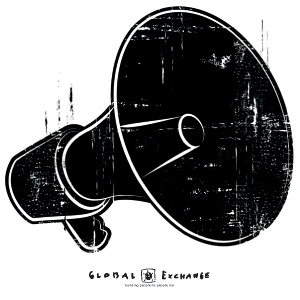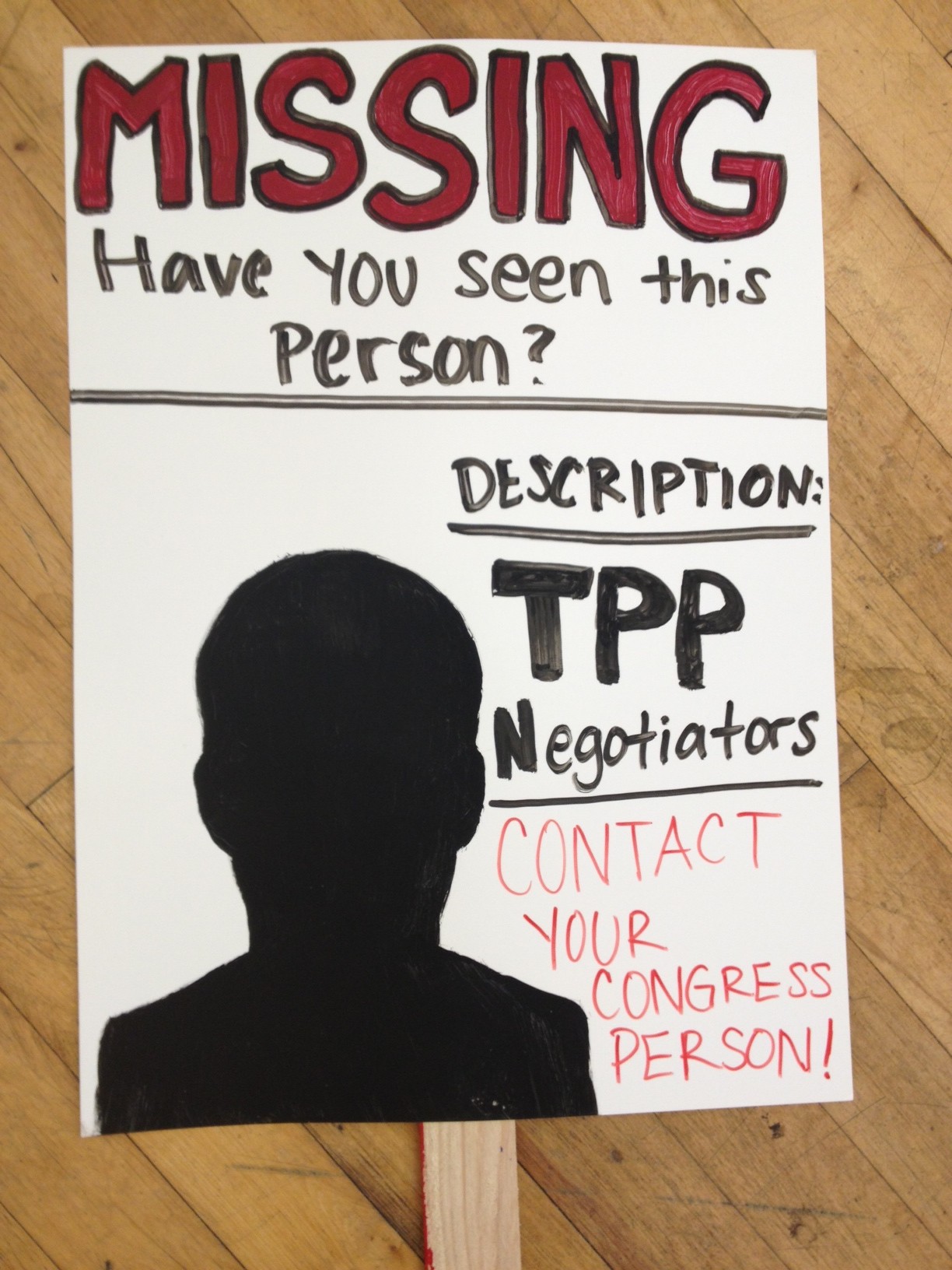 News broke late last week in a few subscription-only, on-line, trade journals that while the next full round of negotiations of the Trans-Pacific Partnership (TPP) are slated to take place in Malaysia in mid-July, “the negotiating group on rules of origin will meet June 23-29 in San Francisco, according to Peruvian government resolutions published on June 16 and 17 in the country’s official newspaper.”
News broke late last week in a few subscription-only, on-line, trade journals that while the next full round of negotiations of the Trans-Pacific Partnership (TPP) are slated to take place in Malaysia in mid-July, “the negotiating group on rules of origin will meet June 23-29 in San Francisco, according to Peruvian government resolutions published on June 16 and 17 in the country’s official newspaper.”
Often occurring under the radar, intersessionals, meetings that take place between official TPP negotiations, are happening in advance of the session in Malaysia to try to keep the free trade talks on track for conclusion this fall. Last month, negotiators of the ever controversial investment chapter met in Vancouver and were challenged with a teach-in on TPP, a night-time light projection of anti-TPP messages and a protest organized by the TPPxBorder Network.
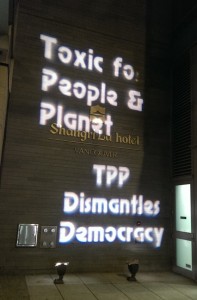
Protest projection in Vancouver B.C. June 2013
A meeting in San Francisco on Rules of Origin? As Arthur Stamoulis from the Citizens Trade Campaign explains,
“One of the least talked about chapters of the TPP is something called ‘Rules of Origin’. Rules of Origin are the standards that must be met in order for a product to be labeled “Made in the USA,” “Made in Brunei,” “Made in Vietnam” or wherever in order to qualify for the provisions set by the overall TPP Agreement.
There are different ways of evaluating a product’s origin, but one common way is by looking at the value of the parts that make up a finished product that’s to be exported. So, for example, if the Rule of Origin on cars is set at 50% — at least half of the parts in a finished automobile need to come from Japan in order to be labeled “Made in Japan” under the pact. If the Rule of Origin is only set at 30%, up to 70% of the parts can come from elsewhere and the car can still be labeled Japanese.”
We thought that the Rules of Origin negotiators would like to hear from former sweatshop worker Chie Abad, who once suffered under an earlier version of these Rules of Origin in the U.S. protectorate, Siapan. Working for GAP, and other U.S. retailers through the SAKO garment factory, she sewed “Made in the USA” labels into clothing, yet enjoyed none of the worker protections which U.S. workers do. In fact, she was fired for attempting to organize a union. Again, Arthur explains how the TPP takes advantage of the experience Chie had, and make it worse,
“Brand-name product companies, as well as retailers like Walmart and Target, want low Rules of Origin that enable them to source parts from wherever in the world they can get them for the cheapest price and then assemble them in low-wage TPP countries and still qualify for the zeroed-out tariff rates and quotas the TPP will provide. Often this means sourcing production wherever labor is the most exploited and environmental regulations the weakest.”
Because the government of Vietnam, which promotes it’s country as a low-cost labor alternative to China, is siding with the major transnationals in pushing for much lower Rules of Origin than most other countries within the TPP negotiations, we’d heard that the Rules of Origin negotiations are very heated. Despite photos of friendly handshakes after the recent full round in Lima, Peru, countries are far from reaching agreement, and continued disagreement over the chapter possesses the potential to sink the entire pact.
We tried for days to contact the Rules of Origin negotiators, but with no luck. We called the top hotels in the city and found that not only did most people not know where the negotiatiors were meeting, they also didn’t know what the TPP is, so we decided to take to the streets and look ourselves (and do some public education at the same time!). Here’s what happened:
 TAKE ACTION!
TAKE ACTION!
- Sign the petition to halt TPP negotiations.
- Save the date July 23, 2013 for San Francisco’s action event against TPP and email TPPTuesday (at) gmail (dot) com for details.
- Check out the June 25th TPP action photos on Facebook.

